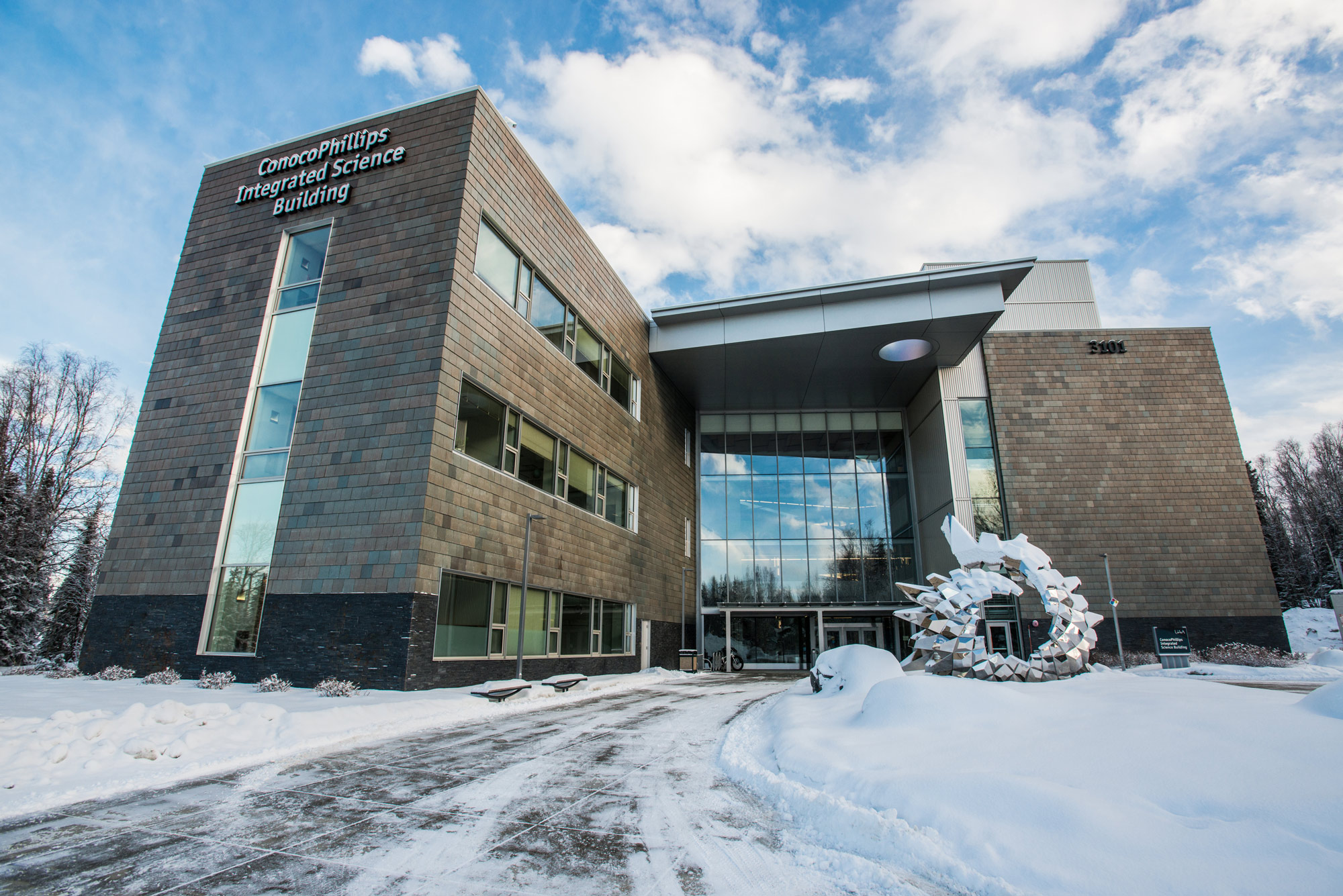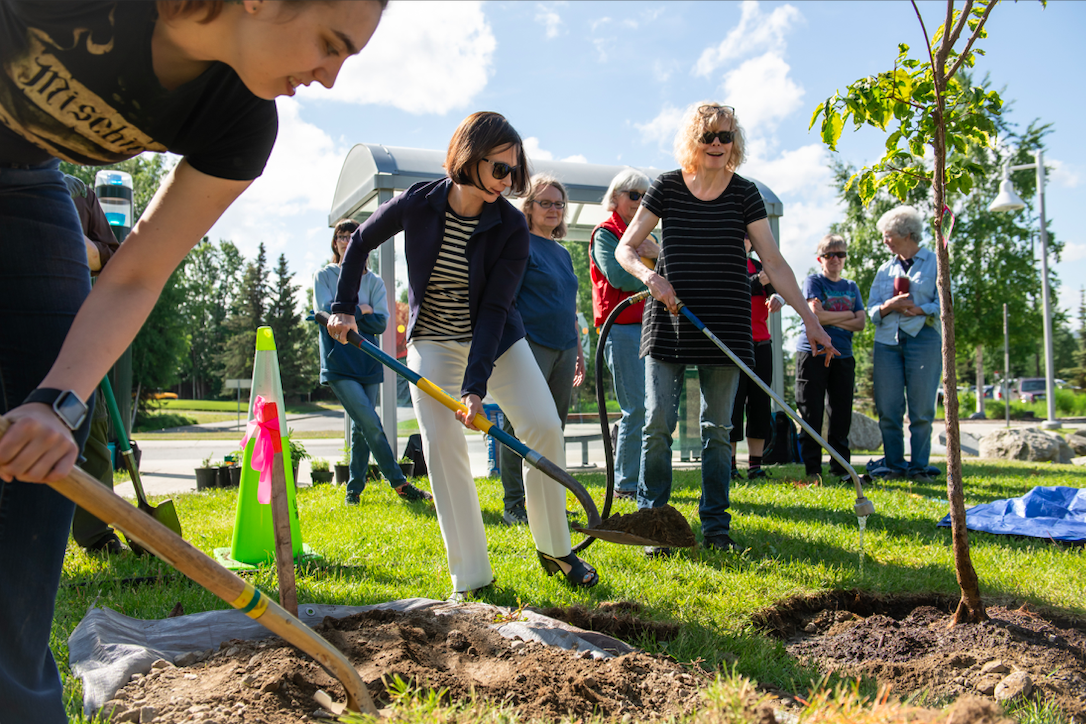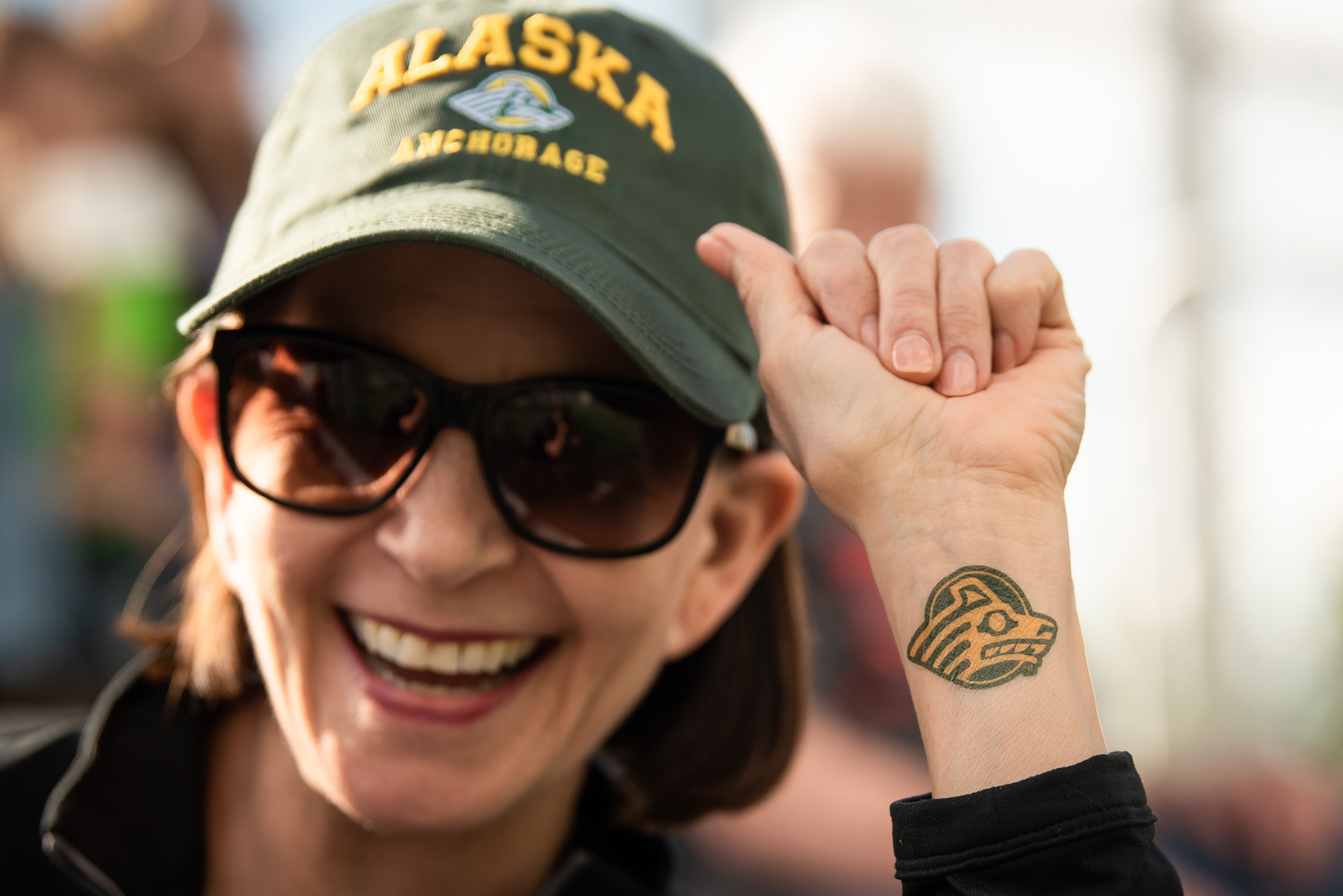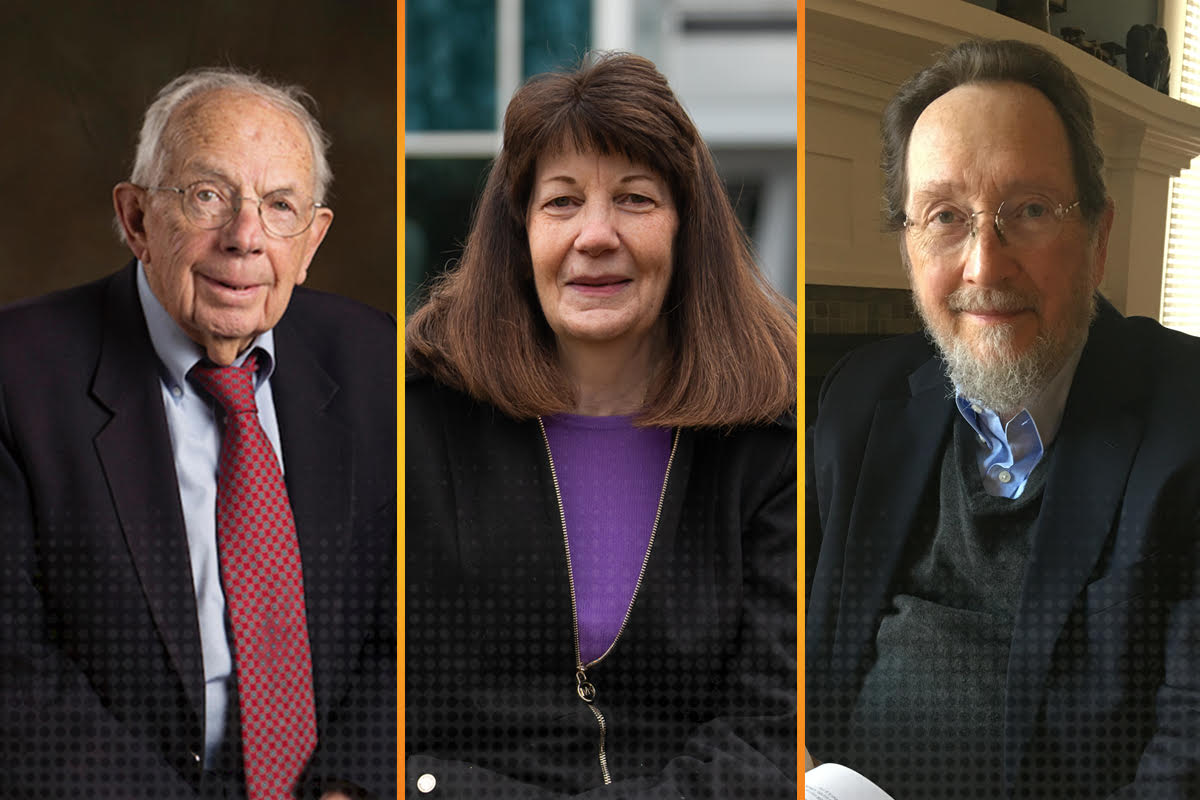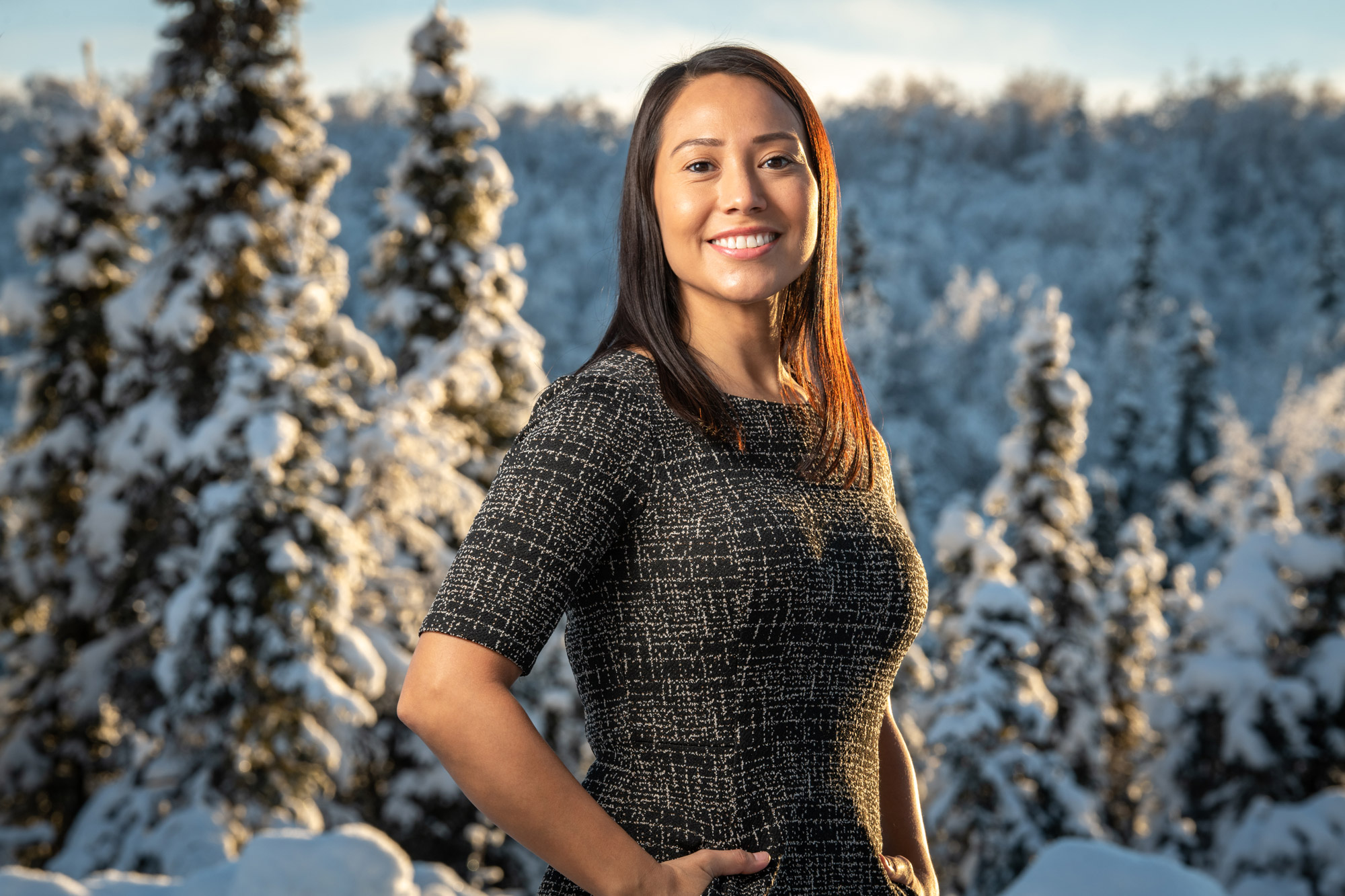Coming full circle
by Catalina Myers |
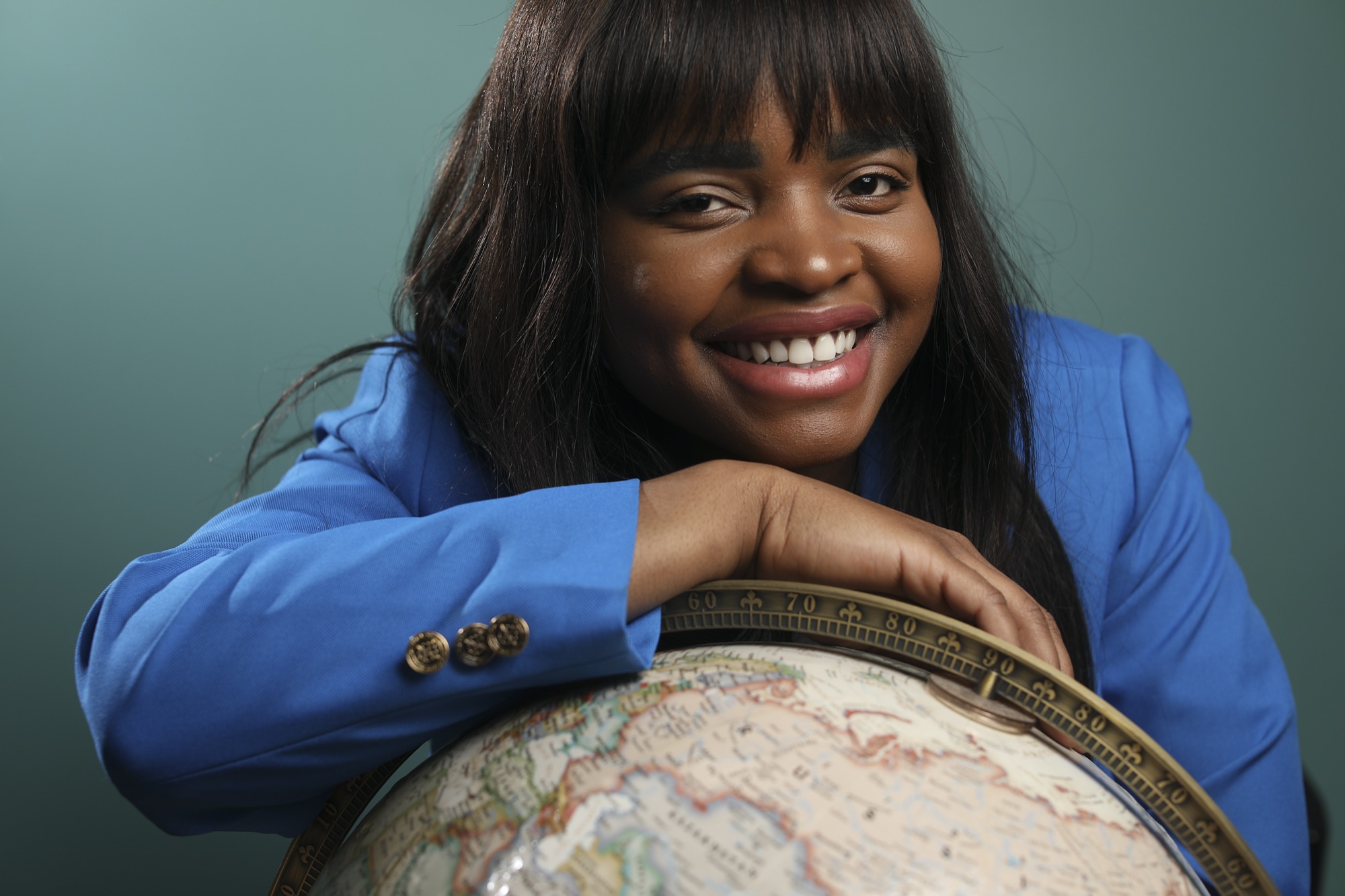
In November 2008, Dieuleveut Biringanine and her family touched down at Ted Stevens International Airport. It was cold, there was snow on the ground and it was right before Thanksgiving. Her family was greeted by volunteers from Catholic Social Services who helped the family of five resettle into life in the 49th state.
The UAA political science junior and international studies minor was 9 years old at the time and had just traveled across two continents and the Atlantic Ocean to escape the violence of the Rwandan genocide that had spilled across her home country’s border, the Democratic Republic of Congo (DRC).
In 2003, when Biringanine was 3 years old, her parents made the difficult decision to pack up their family and flee to neighboring Zambia to live in a refugee camp and began the years-long process of applying for refugee status through the United Nations (UN). Much of Biringanine’s early childhood was spent living in one of Africa’s oldest refugee camps, Mayukwayukwa Refugee Settlement, but nearly five years after applying for refugee status with the UN, Biringanine and her family learned that they were going to be resettled in the United States — they just didn’t know where.
“All we knew is that we were going to the United States,” she said. “We didn’t know we were going to Alaska until we got to Alaska.” The cross-continental trip took the Biringanine family from New Jersey to Seattle to Alaska and a completely different life than the one they’d known.


“It was really overstimulating,” Biringanine said. “We didn’t know the language, the culture and people talked so fast.” That January, Biringanine and her older sister were enrolled in elementary school and it was a long, lonely year, she said. Over the summer, she, her brother and sister took English during summer school and was fluent by the next fall.
But despite the turbulence of her early youth, Biringanine adapted to her new northern home. She learned the language and had assimilated to her new country and state’s culture, and by middle school, she felt like she fit in. In 2018, she graduated from Service High School and set her sights on higher education, ultimately deciding her hometown university was the best fit and choice.
From student government to Model UN
“I joined student government my junior year,” said Biringanine of her time at Service High School. It’s what she credits for steering her toward a course of studying political science and international studies at UAA. “I loved student government. I loved everything about it. The leadership skills I learned and the people I met — getting to be on the ASD Student Advisory Board — so many great things happened that year.” During her senior year of high school, Biringanine ran for student body president and won, which opened a lot of doors and piqued her interest more in political science.
During her first semester, Kimberly Pace, term assistant professor in the Department of Political Science and Women’s Studies, came to present and recruit for UAA’s Model UN class in her poli sci 101.
“I was really interested at the time — it was just so incredible to see how the process worked, and how they resembled the UN,” Biringanine said of joining the university’s Model UN class and team. “She designs the class so it’s student-led and you have a voice and can speak up about the ideas you have and the different issues of the world. You also get to embody a nation you’ve never been to. It’s just cool how she sets up the class.”
Last year, Biringanine represented Canada’s indigenous people, which she said she loved learning about. After the semester was over, Biringanine went to Pace and asked how she could get more involved and she had a light bulb moment.
“That’s when I started thinking about the UN and how amazing their processes are, and how the UN was the reason I’m here,” she said. “All the processes we went through — all of that came full circle for me — and I decided I want to be a part of that for the rest of my life.”
This year, Biringanine is a Model UN secretariat and high commissioner for refugees (UNHCR), which she says she has a special insight into now having been on both sides of that experience.
“I’m able to give a first-hand perspective on what it’s like to be a refugee and also what it’s like to go through the process of resettlement,” she said. “I can help someone find a better life and that’s my career goal — that’s where my career is headed — to hopefully be a field office for the UNHCR and to go back to the refugee camps.”
Biringanine has a few more years at UAA before graduating, but she’s making the most of her time and the connections she’s made already. When she’s not busy in class, studying and working, you can see her at various community events, donning her Miss Anchorage crown. She is proud to represent women in an organization that has updated its values for modern times and sees her competing in the scholarship world as a way for her to make new connections and accomplish her goals of working for the UN. For Biringanine, that is what it is all about — paying it forward to another family, another child in a refugee camp who is waiting their turn for a chance at a completely different life.
“It’s about surviving — you’re in survival mode,” Biringanine said recalling life in the refugee camps. “Coming here, you’re actually living and transitioning from surviving to living is really hard. Which is why I want to work hard so I can have what I didn’t and provide that opportunity for someone else in the future.”
 "Coming full circle" is licensed under a Creative Commons Attribution-NonCommercial 4.0 International License.
"Coming full circle" is licensed under a Creative Commons Attribution-NonCommercial 4.0 International License.










